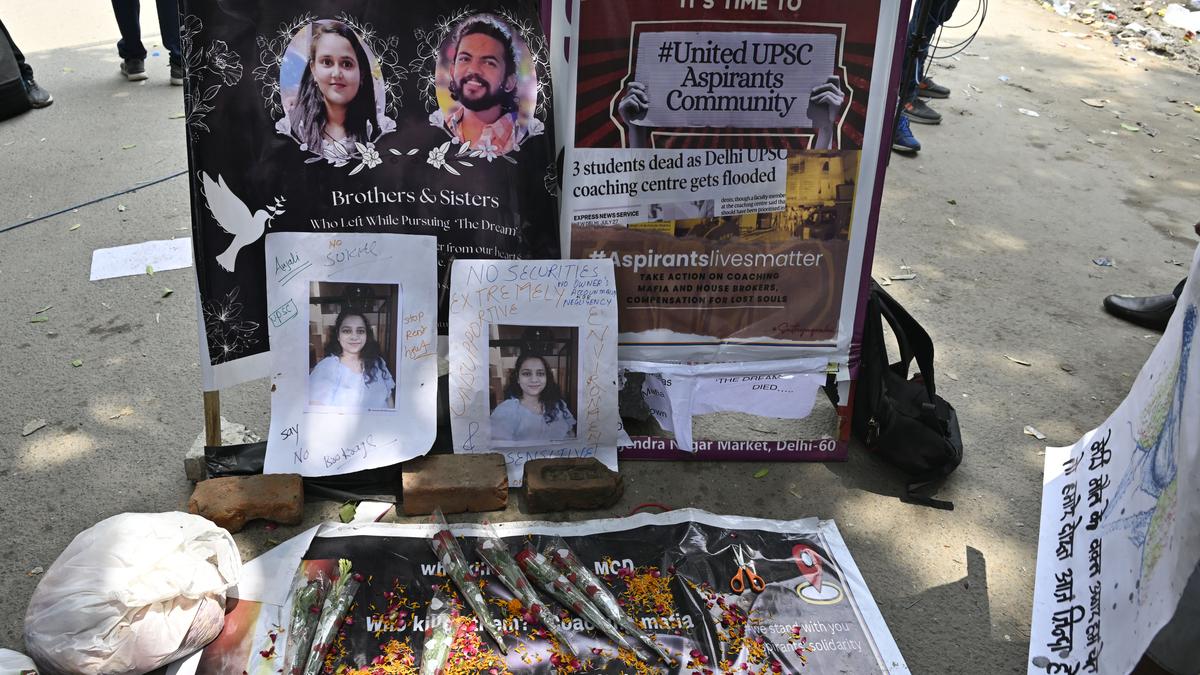On July 27, three students died in a flooded basement, which was being used as a library by Rau’s IAS Study Circle. Due to heavy rains, the basement of the building got filled with water, and many students who were in the library were trapped inside. This incident led to massive protests and strong public outrage. It drew attention to how building rules and safety measures in Delhi’s coaching centres are flouted and ignored. Delhi, being a hub for UPSC coaching institutes, attracts and motivates many aspirants to prepare for the civil services. A study conducted by Lokniti-CSDS among 1,003 UPSC aspirants in Delhi just a week before this mishap indicates that the city’s renowned coaching institutes and its competitive environment attracts students from all over the country to fulfil their dreams in the bustling capital. We summarise the reasons for the pull Delhi holds and the sometimes dreamy but often gory implications.
Why Delhi?
Delhi has a well-established reputation as being the hub for UPSC coaching, and this was the main attraction for close to six of every 10 (58%) surveyed students who came to Delhi for coaching. This is not merely a perception — some of the most prestigious coaching institutes are based in Delhi. These include Chanakya IAS Academy, Rau’s IAS Study Circle, and Vajiram and Ravi, to name a few. With their reputation and acclaimed facilities, such as a well-trained and experienced faculty, enriched study materials, and a systematic approach to preparing students, these institutes instil confidence in the students to succeed.
Additionally, the competitive atmosphere in Delhi gives students the right ambience to prepare for the examinations with all seriousness. It is motivating to be surrounded by thousands of like-minded, ambitious, and focused people who share similar goals and aspirations. In the study, one seventh (14%) of the students stated that they came to Delhi because they wanted to be in the city’s competitive environment for UPSC preparation. However, one in every 10 (11%) came to Delhi for preparation on the recommendation of friends, family, or teachers. Only a few based their choice on the coaching centres (Table 1).
Delhi coaching centres attract students not only from Delhi but also from other States like Uttar Pradesh (24%), Bihar (12%), Haryana (7%), and Rajasthan (7%). States like Madhya Pradesh (6%) and Maharashtra (4%) too account for a small but significant chunk of students (Table 2).
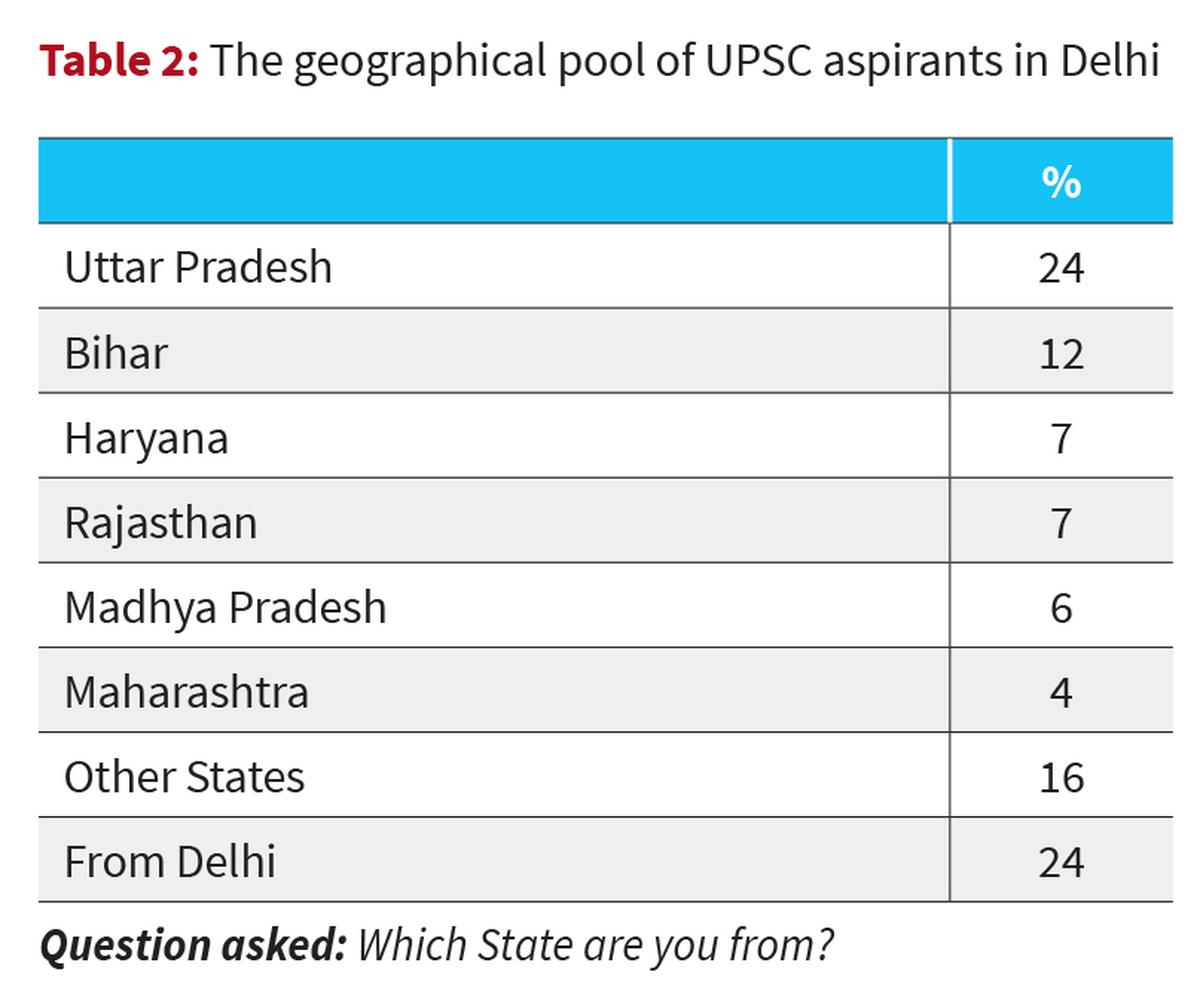
Examining the residential backgrounds of these candidates, it was discovered that, in addition to the students from cities (50%), there are also students from small towns (25%) and villages (25%) who come to Delhi to prepare for UPSC. This indicates that civil services and the idea of training in Delhi are widely popular throughout various geographical areas.
Away from home
One of the significant challenges for these aspirants is living away from their families. While one in three surveyed aspirants stay with family (parents or siblings), nearly two in five (22%) live with their friends.
A large proportion of aspirants, close to a half (45%), live alone (Table 3).
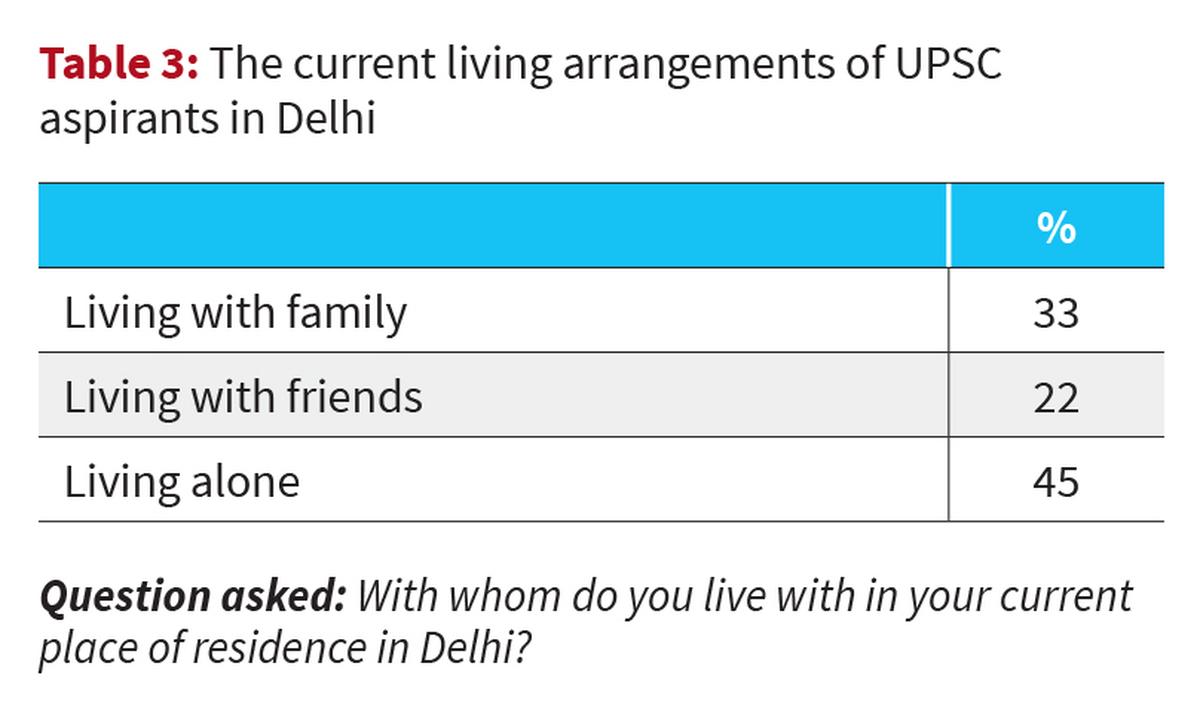
This physical isolation often leads to homesickness, with varying degrees of frequency. Three in five (60%) aspirants coming from other States, feel homesick often or sometimes, compared to one in five who never feel homesick. To cope with this, students frequently meet their parents. While one in 10 (12%) meet their parents once a month, others do so less frequently. Three in 10 stated that they meet their parents quarterly, and nearly a similar proportion (27%) meet their parents only twice a year. A notable portion (9%) had not met their parents since coming to Delhi (Table 4).
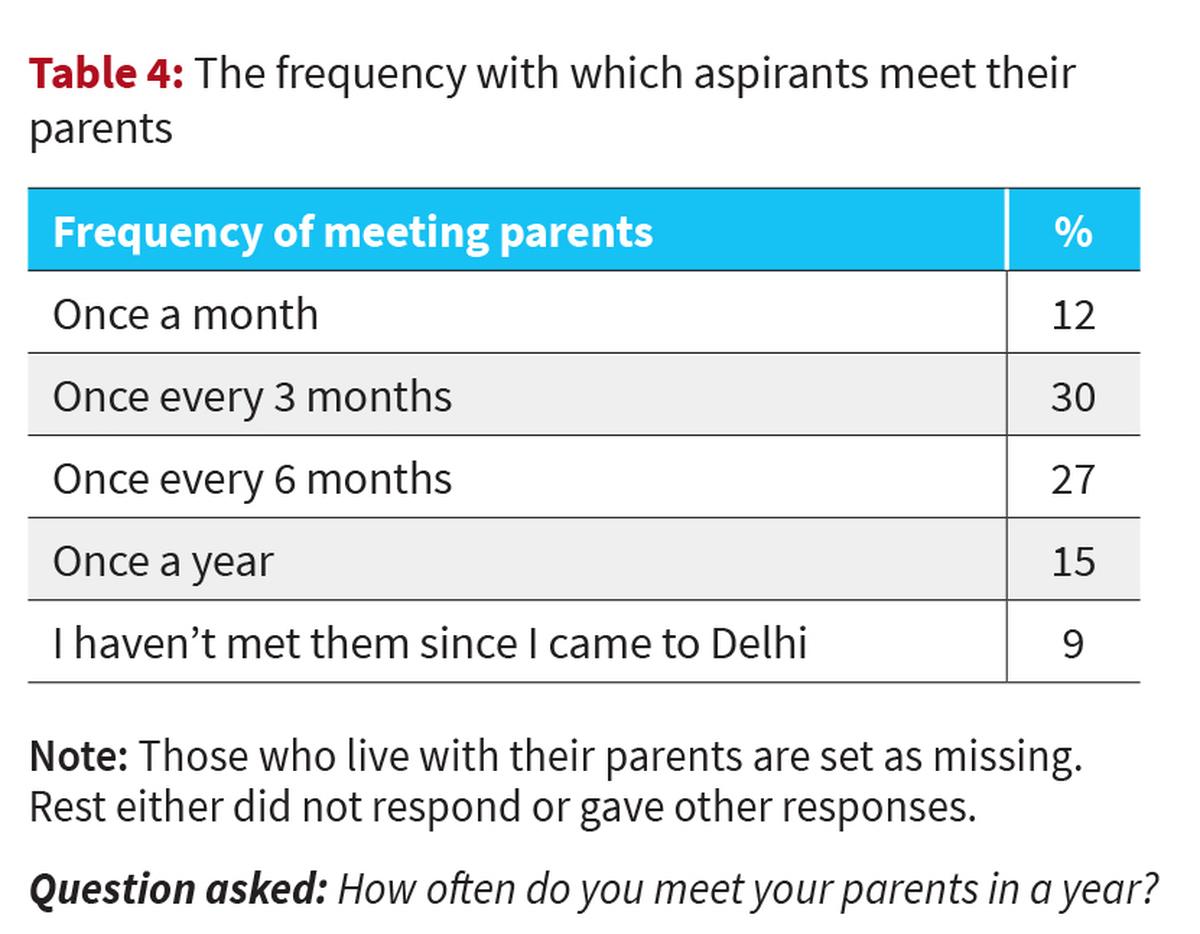
Living alone in an unknown city without the immediate support of family can increase feelings of stress and anxiety. However, the demanding nature of UPSC preparation makes it necessary to give more time to study than to recreational or leisure activities.
Staunch dedication
A UPSC aspirant’s journey is often long and difficult. Students prepare and take exams multiple times due to limited seats and high numbers of applicants. For nearly three in five (58%) aspirants from the study, it is their first attempt, while one in five (20%) students are trying for the second time. The success rates are daunting, with a small percentage clearing the prelims, even fewer the mains, and a minuscule number, the interview (Table 5).
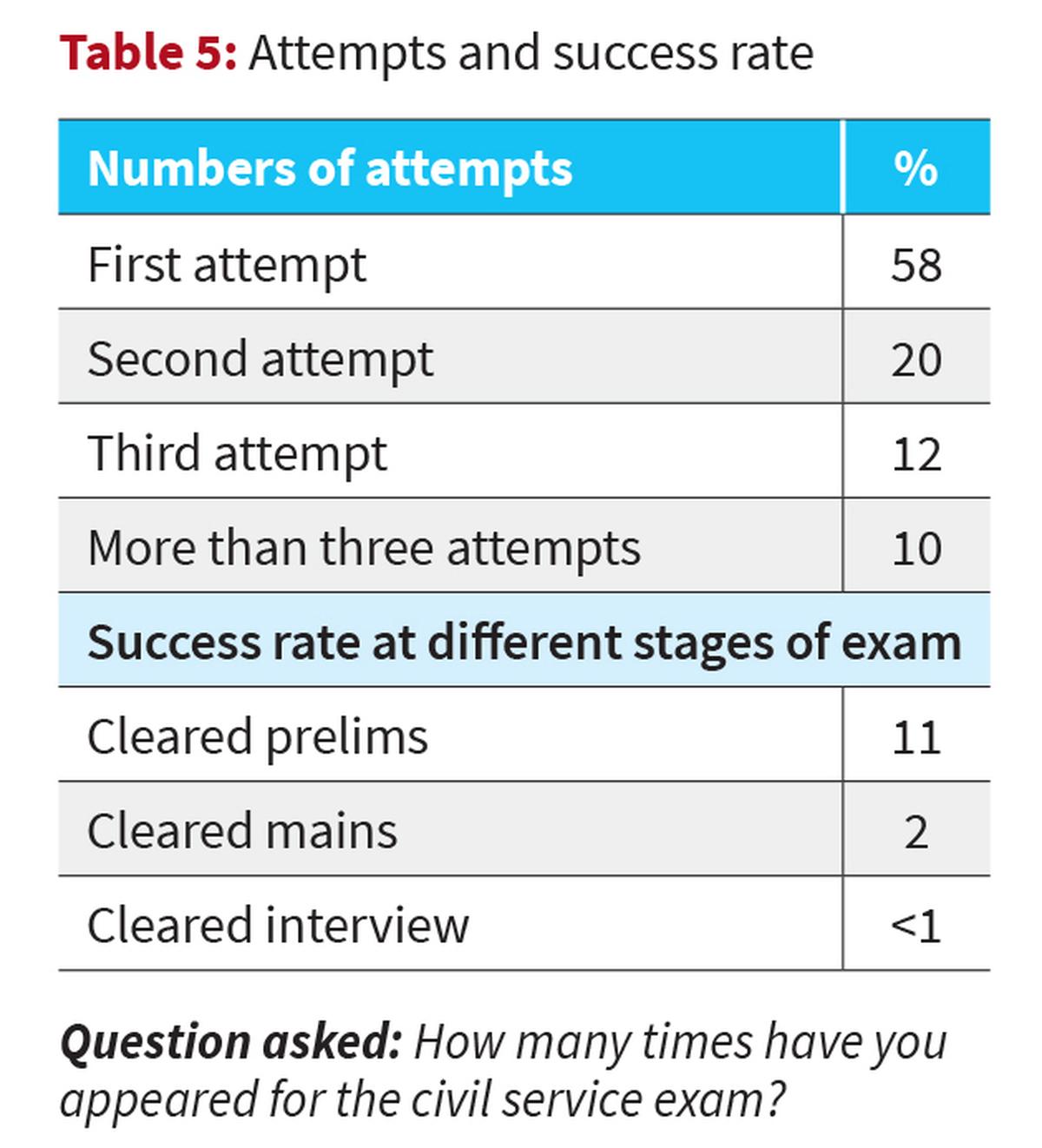
The motivations for opting for civil services are varied among aspirants. Serving the nation is the primary motivation for many aspirants, as stated by 26% of the students. Career stability and security are also important motivations for pursuing civil services, with 17% of the surveyed aspirants motivated by this factor. Other factors, such as personal interest (15%) and the prestige and respect (14%) associated with these jobs, have also motivated the youth towards civil services. Notably, one in 10 (10%) wanted to carry forward their family tradition as their family members were employed in government jobs. Although a good salary is typically the primary motivation for getting any kind of job, only 7% say they want to get into administrative services due to the good salary (Table 6).
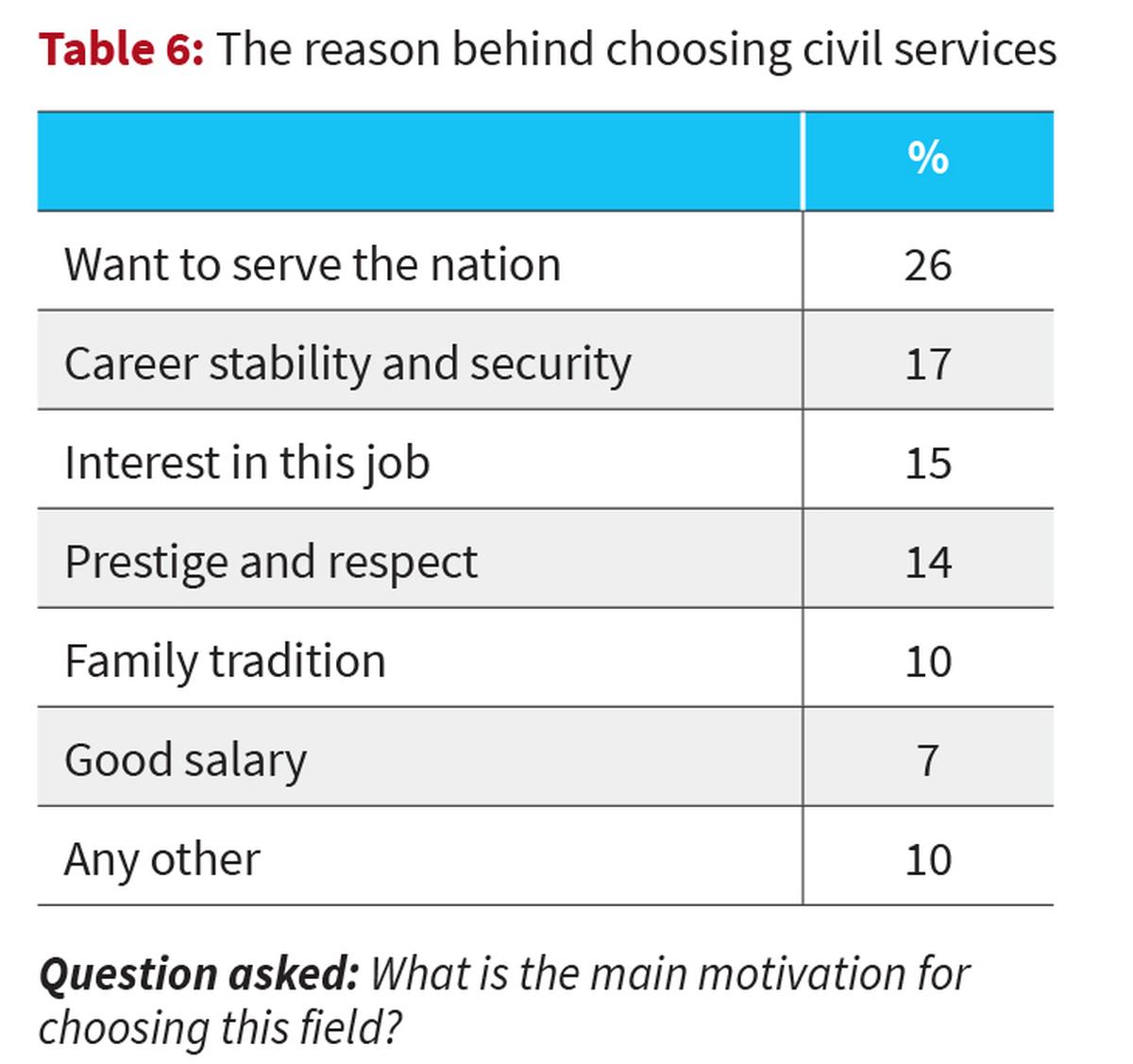
Cracking the UPSC exam is seen as a milestone in an aspirant’s life as it confers respect in society and improves their standard of living. Past studies by the CSDS- Lokniti have also indicated the strong preference for government jobs (Youth Studies 2016, 2022, 2023). The pursuit of civil services is also significantly influenced by factors such as career stability and security. In India, government employment is renowned for its retirement benefits, attractive perks, and job security. A reliable job is greatly desired in a nation where unemployment and economic instability are pervasive.
Delhi is a popular hub for UPSC preparation because of its prestigious coaching facilities and highly competitive atmosphere. The youth put in a lot of effort to pass the UPSC exam despite the challenges of living away from home and the psychological costs of homesickness. However, the recent incident at Rau’s IAS Study Circle highlights how crucial it is to address infrastructure requirements and safety regulations in coaching centres. It emphasises the need for stronger support networks and safer surroundings to guarantee their well-being.
Sanjay Kumar is professor and co-director Lokniti-CSDS, Sandeep Shastri is Director-Academics, NITTE Education Trust and the national coordinator of the Lokniti Network and Jyoti Mishra is researcher at Lokniti-CSDS.

